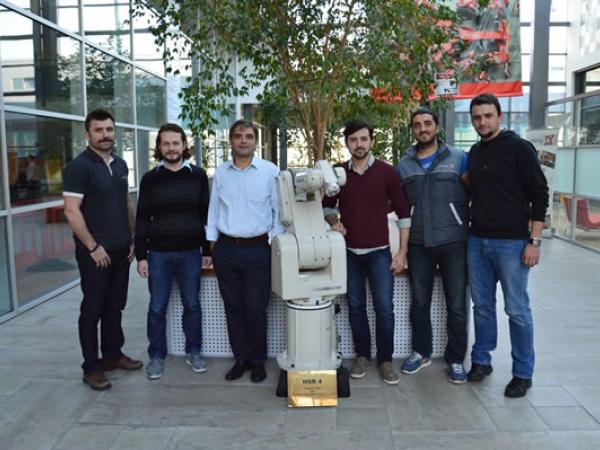
Date: 19 February 2016
Flexible and automated grinding process with constant quality on all points of the glass sides translates to a cost effective system. This has been proven to be an important advantage for automotive glass manufacturers.
The system developed by ALTINAY engineers, allows robotic grinding with simple rough positioning of the glass. At the heart of the system lies a variable pressure special attachment that provides real time force feedback.
The attachment in this patented system works in sync with the robot trajectory generated with ALTINAY proprietary software from the DXF file of the glass.
Main photo: Robotic Glass Grinding development team (from left to right: A. Şimşek, H. Şen, Dr. A.E. Çetin, I.B. Ayaz, E. Doğan, S. Çakır)
What are the traditional glass grinding methods?
There are many equipment, from simple machines to complete automatic lines that are used for glass grinding today.
Automated lines must operate online with cutting and snapping operations in order to maintain the reference of the glass. They can be effective if production runs are very large and acceptable tolerances relatively wide.
.jpg)
Automotive glass ready for dispatch
What are some common issues with traditional automated methods?
Even when working online with large production runs of standard shaped glass -the area where traditional automated grinding solutions can provide acceptable results- grinding performance is directly linked to the precision and accuracy of the previous processes (cutting and snapping) as well as any shifting during transfer that might affect the positioning of the glass plates. Even small shifts in positioning can lead to serious quality issues.
These lines, usually 40 m in length or more, must operate with standard “dumb” servo systems that do not provide force feedback during the grinding operation. As a result, issues of uneven quality are common. Wear on the abrasive tool leads to uneven grinding during production. Periodic checks and revisions, which are unproductive breaks, are needed to avoid this.
Furthermore, our customers have informed us that a major problem is a hidden one. Life is not perfect, and often, short production runs, or even last minute planning changes are required. Traditional automated grinding processes are not designed to deal with these real life issues. Production plan changes and short production runs cause long downtimes due to system re-configuration.
System basic information
How did ALTINAY solve these issues? Are there any innovations?
When ALTINAY engineers tackled this problem, they set themselves 3 objectives:
- Avoid the need for a precise (expensive) positioning set up. In other words, design a system where the glass plates only need to have a rough positioning on the production line
- Ensure that even grinding parameters and quality is achieved on the whole perimeter of the glass, even for complex shapes.
- Avoid quality fluctuations due to wearing of the abrasive medium and the downtime associated with this.
The solution designed by ALTINAY achieved all 3 objectives and even ended up offering 2 additional important advantages:
- Increased flexibility in the production process: any shape glass can be fed into the system with essentially zero changeover time! This opens up a whole range of possibilities (think “just-in”sequence” production for multi derivative automotive production lines)
- Possibility to disconnect the grinding operation from the cutting and snapping operations: this allows factory design flexibility, or even executing the grinding operation in remote locations.
ALTINAY received a patent for this innovative solution
.jpg)
Robotic glass grinding system in operation
How does the system work?
At the heart of the system lies a variable pressure special attachment. The attachment in this patented system works in sync with the robot trajectory generated from the DXF file with ALTINAY proprietary software.
The variable pressure attachment is able to work with the rough positioning of the glass plate and thanks to the force feedback, can apply a steady force to the complete perimeter of the glass.
The operator only needs to provide the DXF file for the glass to be grinded. Our software calculates the trajectory and automatically generates the robot program.
One critical point when preparing the interface software that transforms the DXF file to the robot program was cornering. Anticipating the trajectory allowed to synchronise robot motion and grinding force. Thus, ALTINAY can guarantee a turning radius of 5 mm! Currently, we are carrying out work to further reduce this radius. Our target is to come down to 3 mm.
.jpg)
ALTINAY glass grinding robot arm
Is the system already implemented?
First implementation of this ground breaking system was with Sisecam, at their Trakya plant. Lead-time for this system can be considered as 16 weeks from order to end of commissioning. We are currently in discussion with several processors to install the system at their facilities.
 600450
600450

.jpg)
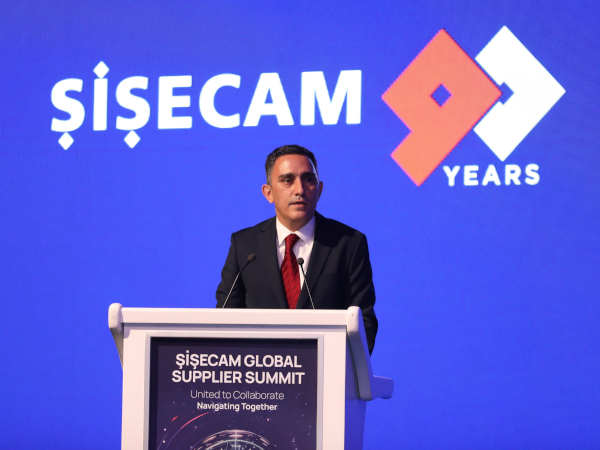

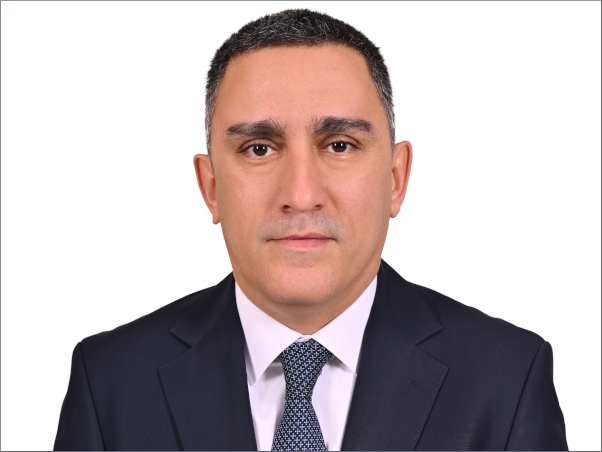
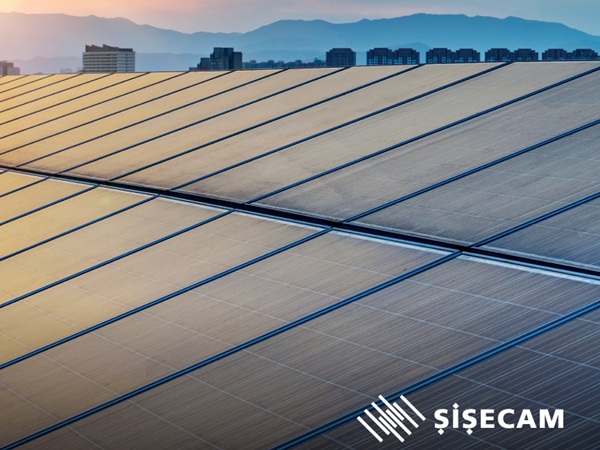
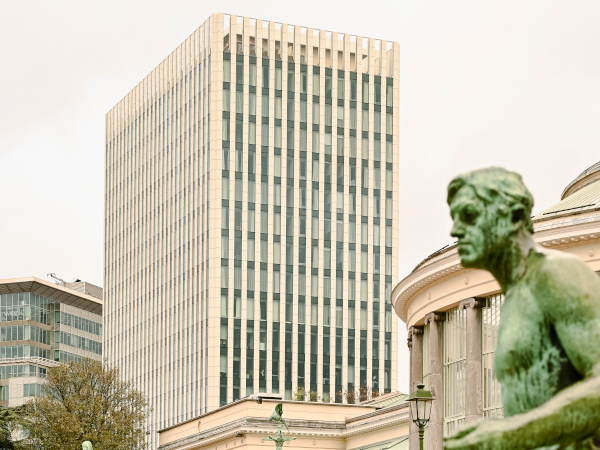
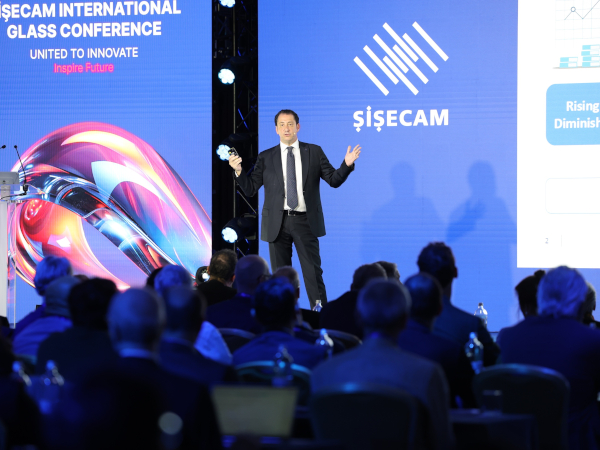


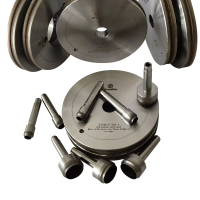


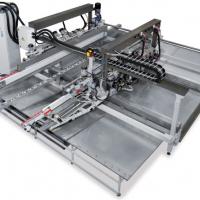


Add new comment